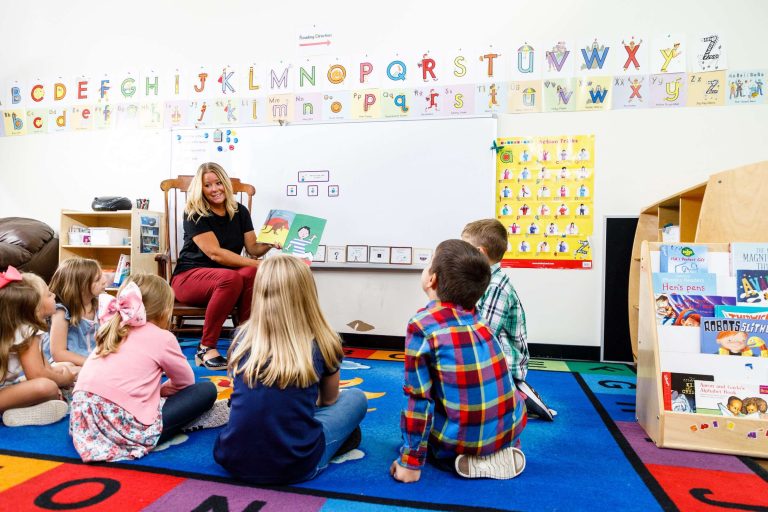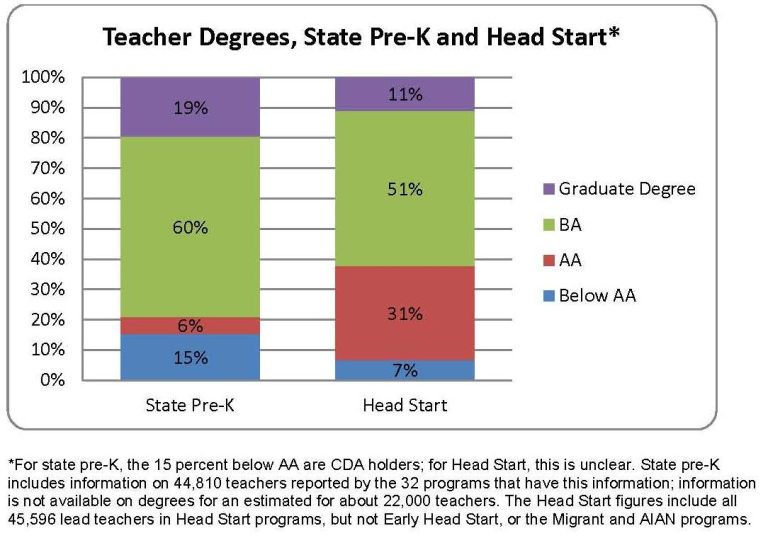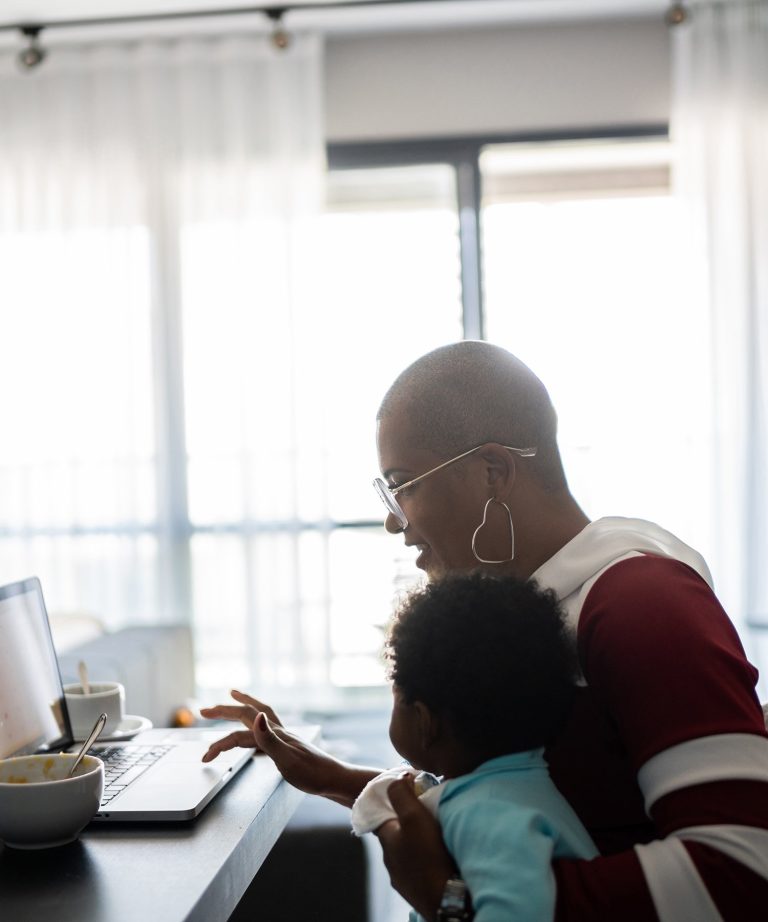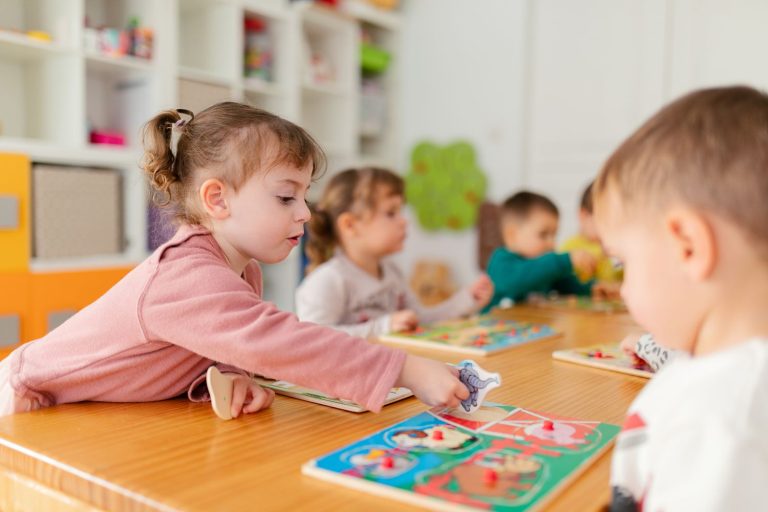Can Early Childhood Education Lab : Transformative Learning Techniques
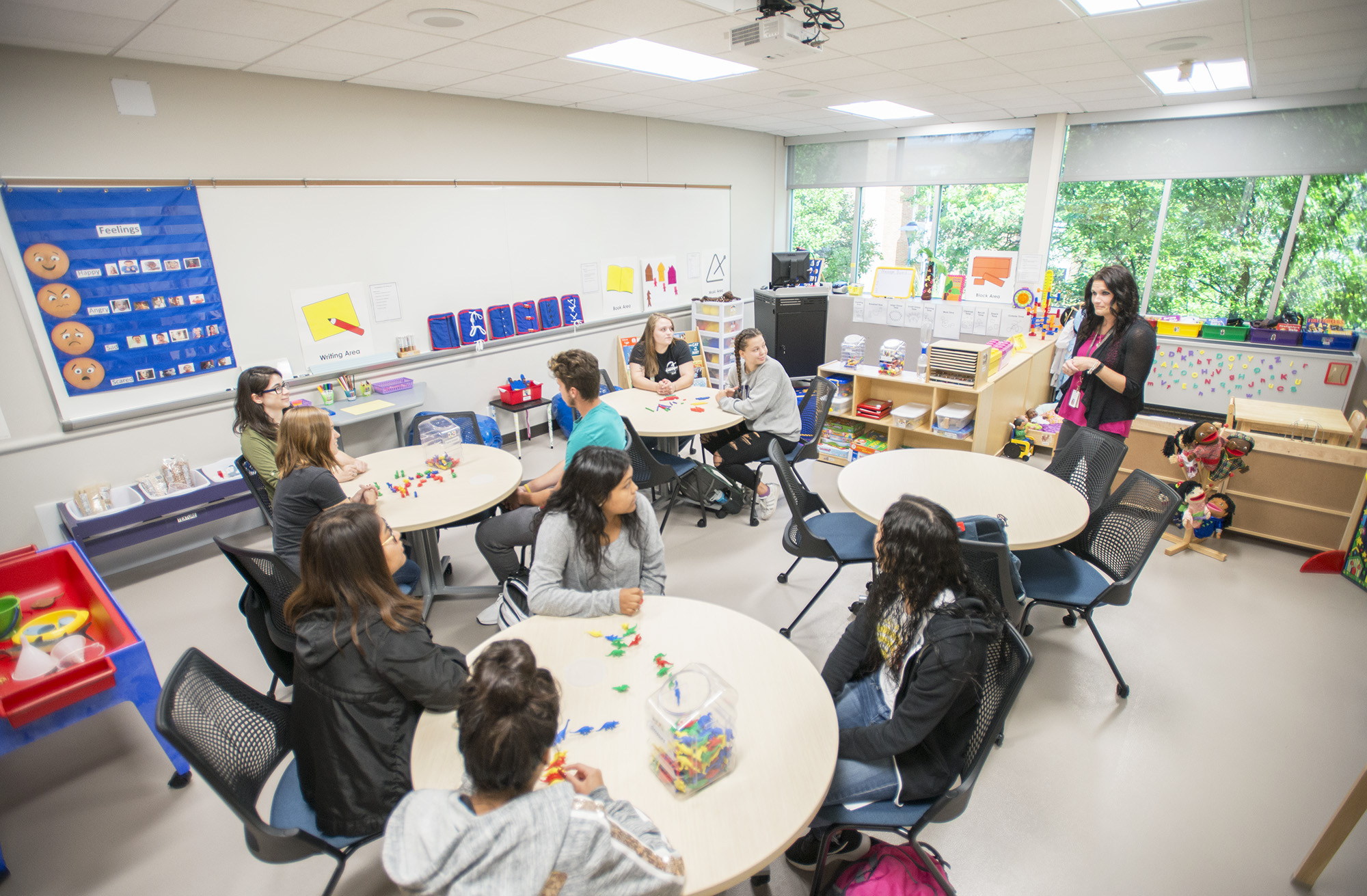
Early Childhood Education Lab can play a crucial role in providing a strong foundation for young children’s learning and development. By offering a supportive and enriching environment, these labs can enhance children’s cognitive, social, and emotional skills, setting the stage for future academic success.
Additionally, they can also serve as training grounds for educators and researchers, promoting innovation and excellence in early childhood education practices. With a focus on hands-on learning experiences and individualized instruction, these labs can make a significant impact on the overall quality of early childhood education.
As a result, they are an invaluable resource for both children and educators alike, contributing to the advancement of best practices in the field of early childhood education.

Credit: www.sipi.edu
The Importance Of Early Childhood Education
Early childhood education lays the foundation for a child’s lifelong learning, development, and success. It plays a crucial role in shaping a child’s cognitive, social, and emotional skills, providing the building blocks for future academic and personal achievements. Understanding the importance of early childhood education is essential for parents, educators, and policymakers to create an environment that nurtures and supports young children’s growth and learning.
Brain Development In Early Childhood
Early childhood education is critical for brain development. During the first few years of life, a child’s brain undergoes rapid growth and development, forming neural connections that shape their cognitive abilities. Quality early childhood education programs stimulate brain development through engaging activities, exploration, and interaction, laying the groundwork for future academic success.
Socialization And Emotional Development
Early childhood education also plays a pivotal role in socialization and emotional development. Children learn to interact with peers, develop empathy, and regulate their emotions in a supportive learning environment. These experiences foster essential social and emotional skills that are fundamental for forming healthy relationships, building self-esteem, and navigating social situations effectively.
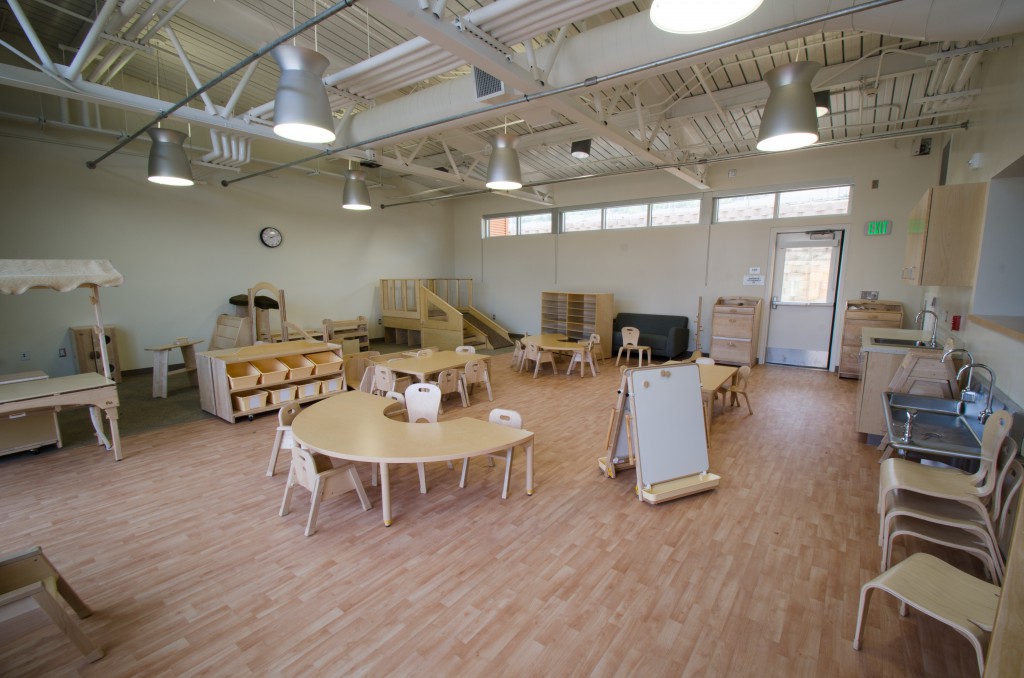
Credit: www.palomar.edu
What Is A Learning Lab?
Early childhood education learning labs are innovative spaces designed to facilitate interactive and experiential learning for young children. These labs are equipped with various educational tools, resources, and technologies to create a stimulating environment that encourages exploration and discovery.
Definition And Purpose
A learning lab in early childhood education refers to a specialized area where young children can engage in hands-on learning experiences, often related to STEM (science, technology, engineering, and mathematics) subjects. The purpose of these labs is to foster curiosity, critical thinking, and problem-solving skills in young learners through interactive and play-based activities.
Benefits Of Learning Labs For Early Childhood Education
- Enhanced cognitive development
- Improved social and emotional skills
- Experiential learning opportunities
- Encouragement of creativity and innovation
- Preparation for future academic success
Transformative Learning Techniques In Early Childhood Education Labs
Transformative Learning Techniques in Early Childhood Education Labs offer innovative and effective methods to enhance the educational experience for young children. These labs are designed to foster a love for learning and exploration, providing a safe and stimulating environment for children to develop essential skills and knowledge.
Play-based Learning
Play-Based Learning is a fundamental technique used in Early Childhood Education Labs to engage children in interactive and imaginative activities. Through play, children learn important social, emotional, and cognitive skills in a natural and enjoyable way. This method encourages creativity, problem-solving, and cooperation, laying a strong foundation for future academic success.
Inquiry-based Learning
Inquiry-Based Learning encourages children to ask questions, explore, and investigate their surroundings. This technique stimulates curiosity and critical thinking, empowering children to become active participants in their own learning process. By encouraging inquiry, educators help children develop a deep understanding of concepts and foster a lifelong love for learning.
Experiential Learning
Experiential Learning immerses children in hands-on experiences that allow them to actively engage with the world around them. Through sensory exploration, experimentation, and reflection, children gain a deeper understanding of concepts and develop essential skills. This approach promotes a deeper level of comprehension and encourages children to apply their learning to real-life situations.

Credit: www.grcc.edu
The Role Of Technology In Early Childhood Education Labs
The Role of Technology in Early Childhood Education Labs
Interactive Learning Tools
Interactive learning tools are essential in early childhood education labs as they engage children in hands-on, stimulating activities. These tools can include educational software, digital games, and interactive whiteboards, which provide a dynamic learning environment for young learners.
Screen Time Limits
Screen time limits are crucial in early childhood education labs to ensure that technology usage does not overshadow other important learning experiences. Establishing clear guidelines for screen time helps balance the use of technology with other activities such as outdoor play, group interactions, and creative expression.
Effective Teaching Strategies For Early Childhood Education Labs
Explore effective teaching strategies for early childhood education labs to enhance learning experiences. These strategies focus on hands-on activities, play-based learning, and individualized instruction to foster cognitive and social development in young learners. Implementing these methods can create a stimulating and nurturing environment for early childhood education labs.
Early childhood education labs are essential for children’s development. Effective teaching strategies can help children learn and grow in a fun and interactive environment. Here are some of the most effective teaching strategies for early childhood education labs.Collaborative Learning
Collaborative learning is a teaching strategy that encourages children to work together on tasks and projects. This approach fosters teamwork, communication, and problem-solving skills. In early childhood education labs, teachers can use collaborative learning to help children develop social skills and learn new concepts. For example, teachers can assign group projects that require children to work together to create something, such as a craft or a science experiment.Differentiated Instruction
Differentiated instruction is a teaching strategy that takes into account the different learning styles and abilities of individual children. In early childhood education labs, teachers can use differentiated instruction to tailor their lessons to each child’s unique needs. For example, teachers can use visual aids, hands-on activities, and auditory cues to help children learn in a way that suits them best.Assessment And Feedback
Assessment and feedback are critical components of effective teaching. In early childhood education labs, teachers can use assessment and feedback to evaluate children’s progress and provide guidance on how to improve. Teachers can use a variety of assessment methods, such as observation, quizzes, and tests, to evaluate children’s learning. They can also provide feedback in the form of praise and constructive criticism to help children understand their strengths and weaknesses. Effective teaching strategies are vital for early childhood education labs. Collaborative learning, differentiated instruction, and assessment and feedback are just a few of the many strategies that teachers can use to help children learn and grow. By using these strategies, teachers can create a fun and interactive learning environment that promotes children’s development and prepares them for future success.Challenges And Solutions For Early Childhood Education Labs
Early Childhood Education Labs face several challenges that need to be addressed effectively in order to provide quality education to young learners. Let’s explore some key challenges and their possible solutions:
Cost And Resources
- Limited funding can hinder the development of ECE Labs.
- Seeking grants and partnerships can help secure additional resources.
- Utilizing existing resources efficiently can optimize the budget.
Teacher Training And Support
- Inadequate training may impact the quality of education provided.
- Continuous professional development is essential for teachers.
- Mentorship programs can help new teachers gain experience.
Parental Involvement
- Low parental engagement can affect a child’s learning experience.
- Open communication channels between parents and educators are crucial.
- Encouraging parents to participate in school activities fosters a supportive environment.
Success Stories And Best Practices For Early Childhood Education Labs
Discover success stories and best practices in early childhood education labs, showcasing the positive impact of early childhood education programs. Gain insights and strategies for creating effective learning environments, fostering growth and development in young children. Uncover innovative approaches and practical techniques to enhance early childhood education experiences.
Examples Of Successful Learning Labs
In the world of Early Childhood Education Labs, success stories speak volumes. One such shining example is Can Early Childhood Education Lab. Let’s delve into some exemplary instances of successful learning labs.Key Elements Of Effective Early Childhood Education Labs
Creating a conducive environment is crucial. Here are the key elements that contribute to the effectiveness of Early Childhood Education Labs: – Interactive Learning Spaces: Engaging environments foster curiosity. – Qualified Educators: Trained professionals make a significant impact. – Innovative Curriculum: Keeping pace with modern teaching methodologies. – Parental Involvement: Collaboration between parents and educators is key. – Continuous Assessment: Regular evaluations ensure progress tracking. In summary, success in Early Childhood Education Labs stems from a blend of interactive spaces, qualified educators, innovative curriculum, parental involvement, and continuous assessment.The Future Of Early Childhood Education Labs
Trends And Innovations
Early Childhood Education Labs are embracing cutting-edge trends and innovations to enhance learning experiences.
- Integration of technology for interactive learning
- Focus on sensory and hands-on activities
- Implementation of individualized learning plans
Policy And Advocacy
Advocacy efforts are crucial for shaping the future of Early Childhood Education Labs through policy development.
- Advocating for increased funding for ECE programs
- Pushing for equitable access to quality education
- Collaborating with policymakers to improve regulations
Frequently Asked Questions
What Are The Disadvantages Of Lab School?
Disadvantages of lab schools may include limited extracurricular activities, smaller social circle opportunities, and potential for overemphasis on academics.
What Is The Purpose Of Early Childhood Education?
Early childhood education fosters cognitive, social, and emotional development in young children, laying a strong foundation for future learning.
What Is The Purpose Of A Laboratory School?
A laboratory school serves as a hands-on learning environment for teaching, research, and innovation in education.
Why Are Early Childhood Educators Important?
Early childhood educators are essential because they play a vital role in a child’s development during the most critical phase of their growth. They provide a safe, nurturing, and stimulating environment that promotes cognitive, emotional, and social development. Early childhood educators also help children develop critical thinking and problem-solving skills that are essential for success in later life.
Conclusion
Early childhood education lays a crucial foundation for a child’s future success. It enhances cognitive development, social skills, and emotional well-being. Investing in quality early education programs benefits both individuals and society as a whole. Let’s prioritize early childhood education for a brighter tomorrow.
Lorem Ipsum is simply dummy text of the printing and typesetting industry. Lorem Ipsum has been the industry’s standard dummy text ever since the 1500s, when an unknown printer took a galley of type and scrambled it to make a type specimen book.

